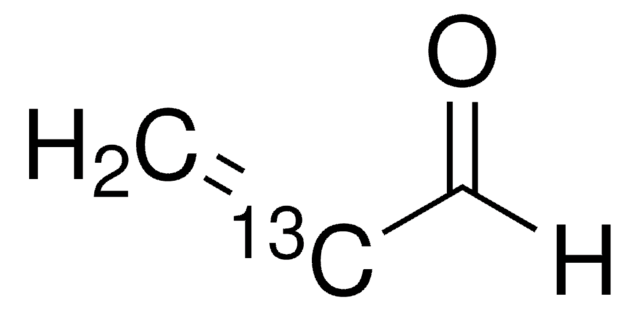10905
Chloroacetone
produced by Wacker Chemie AG, Burghausen, Germany, ≥96.0% (GC)
Synonym(s):
MCA, 1-Chloropropan-2-one, Chloro-2-propanone
About This Item
Recommended Products
grade
produced by Wacker Chemie AG, Burghausen, Germany
Quality Level
Assay
≥96.0% (GC)
contains
~0.1% Drapex 39 as stabilizer
refractive index
n20/D 1.432 (lit.)
bp
120 °C (lit.)
solubility
H2O: soluble 10 parts
alcohol: miscible
chloroform: miscible
diethyl ether: miscible
density
1.162 g/mL at 25 °C (lit.)
storage temp.
2-8°C
SMILES string
CC(=O)CCl
InChI
1S/C3H5ClO/c1-3(5)2-4/h2H2,1H3
InChI key
BULLHNJGPPOUOX-UHFFFAOYSA-N
Looking for similar products? Visit Product Comparison Guide
General description
Application
Other Notes
Signal Word
Danger
Hazard Statements
Precautionary Statements
Hazard Classifications
Acute Tox. 2 Dermal - Acute Tox. 2 Inhalation - Acute Tox. 3 Oral - Aquatic Acute 1 - Aquatic Chronic 1 - Eye Dam. 1 - Flam. Liq. 3 - Skin Corr. 1B - STOT SE 3
Target Organs
Respiratory system
Storage Class Code
3 - Flammable liquids
WGK
WGK 3
Flash Point(F)
95.0 °F - closed cup
Flash Point(C)
35 °C - closed cup
Personal Protective Equipment
Choose from one of the most recent versions:
Already Own This Product?
Find documentation for the products that you have recently purchased in the Document Library.
Our team of scientists has experience in all areas of research including Life Science, Material Science, Chemical Synthesis, Chromatography, Analytical and many others.
Contact Technical Service












